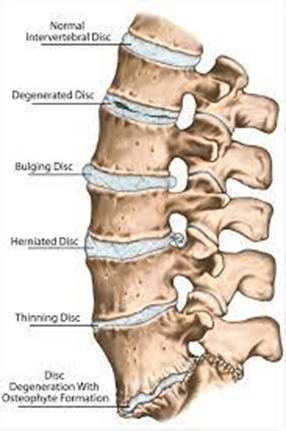A nurse is caring for a client who has degenerative disc disease and has been diagnosed with cauda equine syndrome. Which of the following would be an expected finding with this condition?
Paralytic lleus
Blood pressure 80/48 mm Hg
Weakness in one or both legs
Potassium 3.2 mEq/L
The Correct Answer is C
Choice A Reason:
Paralytic ileus is incorrect. Paralytic ileus is a condition characterized by obstruction of the intestines due to paralysis of the intestinal muscles, resulting in symptoms such as abdominal pain, bloating, and constipation. Paralytic ileus is not typically associated with cauda equina syndrome, which primarily affects the nerves in the lower back and lower extremities.
Choice B Reason:
Blood pressure 80/48 mm Hg is incorrect. While cauda equina syndrome can cause neurological symptoms such as lower extremity weakness, numbness, and bowel or bladder dysfunction, it is not typically associated with alterations in blood pressure. Blood pressure changes may occur in response to pain or other systemic factors, but they are not specific to cauda equina syndrome.
Choice C Reason:
Weakness in one or both legs is correct. Yes, weakness in one or both legs is a characteristic finding of cauda equina syndrome. Compression of the nerve roots in the lower spinal cord can lead to motor deficits, including weakness, difficulty walking, and loss of reflexes in the lower extremities.
Choice D Reason:
Potassium 3.2 mEq/L is incorrect. Serum potassium levels are not typically associated with cauda equina syndrome. Abnormal potassium levels may be indicative of electrolyte imbalances, which can occur in various medical conditions but are not specific to cauda equina syndrome.

Nursing Test Bank
Naxlex Comprehensive Predictor Exams
Related Questions
Correct Answer is ["A","B","C","D","E"]
Explanation
Choice A Reason:
Weight control if the client's BMI is greater than 35 is correct. Obesity is a risk factor for cardiovascular disease and can exacerbate symptoms of heart failure. Weight control, particularly if the client's BMI is greater than 35, is important for managing cardiac conditions such as heart failure and reducing the risk of pulmonary edema.
Choice B Reason:
Healthy lifestyle is correct. Adopting a healthy lifestyle, including regular exercise, balanced diet, adequate hydration, and stress management, is essential for managing cardiac conditions and reducing the risk of complications such as pulmonary edema.
Choice C Reason:
Smoking cessation is correct. Smoking is a major risk factor for cardiovascular disease and can worsen heart failure symptoms. Smoking cessation is crucial for managing cardiac conditions and reducing the risk of pulmonary edema and other complications.
Choice D Reason:
Heart disease prevention is correct. Providing information about heart disease prevention strategies, such as maintaining a healthy diet, managing blood pressure and cholesterol levels, regular exercise, and regular medical check-ups, can help reduce the risk of exacerbations and complications in clients with pre-existing cardiac conditions.
Choice E Reason:
Glycemic control if the client is diabetic is correct. Diabetes is a risk factor for cardiovascular disease and can contribute to the development and progression of heart failure. Glycemic control, along with lifestyle modifications and medication management, is important for managing diabetes and reducing the risk of complications such as pulmonary edema.
Correct Answer is ["A","B","D","E"]
Explanation
Choice A Reason:
Memory loss is correct. Memory loss can occur in individuals with PML due to damage to the white matter of the brain caused by the JC virus infection. This damage can affect cognitive function, including memory.
Choice B Reason:
Clumsiness is correct. Clumsiness or lack of coordination is a common neurological symptom of PML. It can result from damage to areas of the brain responsible for motor function and coordination.
Choice C Reason:
Tardive dyskinesia is incorrect. Tardive dyskinesia is a movement disorder characterized by involuntary, repetitive movements, often involving the face, lips, tongue, and limbs. While tardive dyskinesia can occur as a side effect of certain medications, it is not typically associated with PML.
Choice D Reason:
Seizures is correct. Seizures can occur in individuals with PML due to the involvement of the brain's white matter by the JC virus infection. Seizures may present as sudden, uncontrolled movements, altered consciousness, or other neurological symptoms.
Choice E Reason:
Vision difficulty is correct. Vision difficulties, including blurred vision, visual field deficits, and other visual disturbances, are common manifestations of PML. Damage to the optic nerves or areas of the brain involved in visual processing can result in vision difficulties.
Whether you are a student looking to ace your exams or a practicing nurse seeking to enhance your expertise , our nursing education contents will empower you with the confidence and competence to make a difference in the lives of patients and become a respected leader in the healthcare field.
Visit Naxlex, invest in your future and unlock endless possibilities with our unparalleled nursing education contents today
Report Wrong Answer on the Current Question
Do you disagree with the answer? If yes, what is your expected answer? Explain.
Kindly be descriptive with the issue you are facing.
